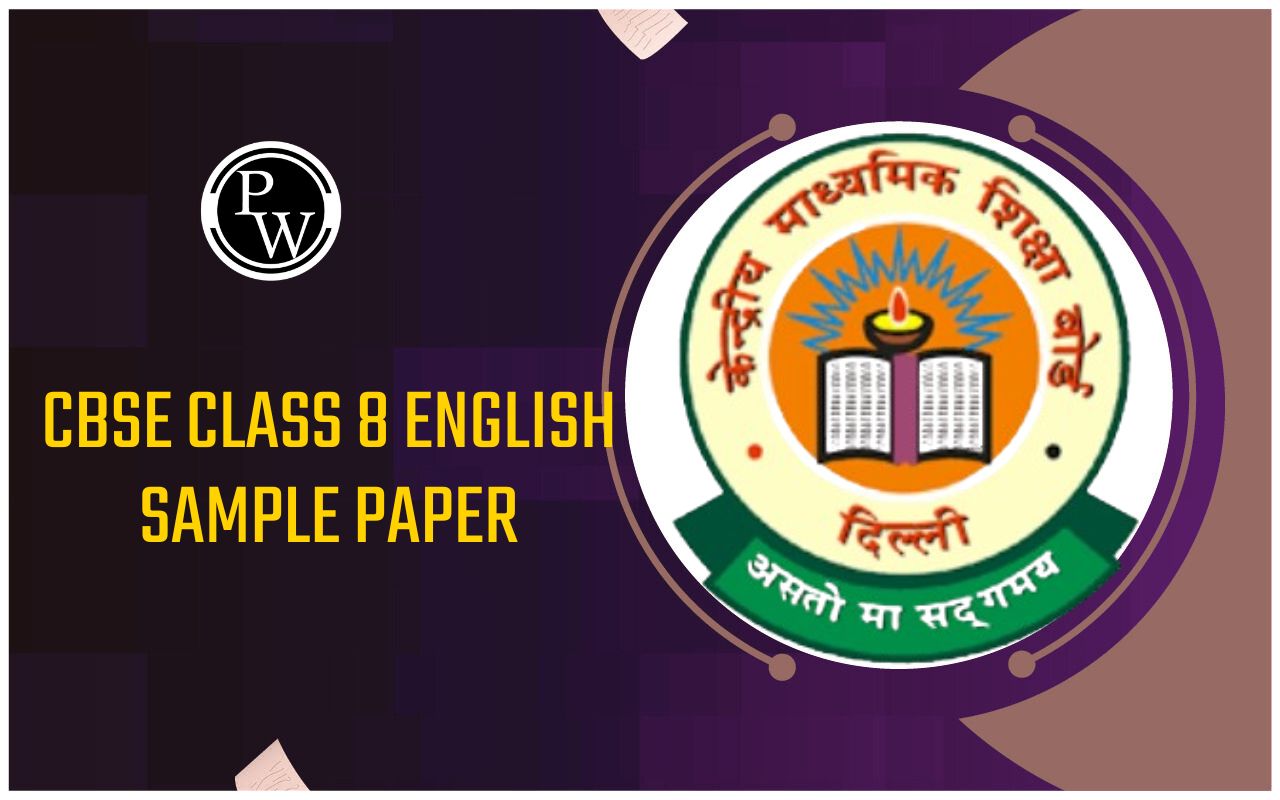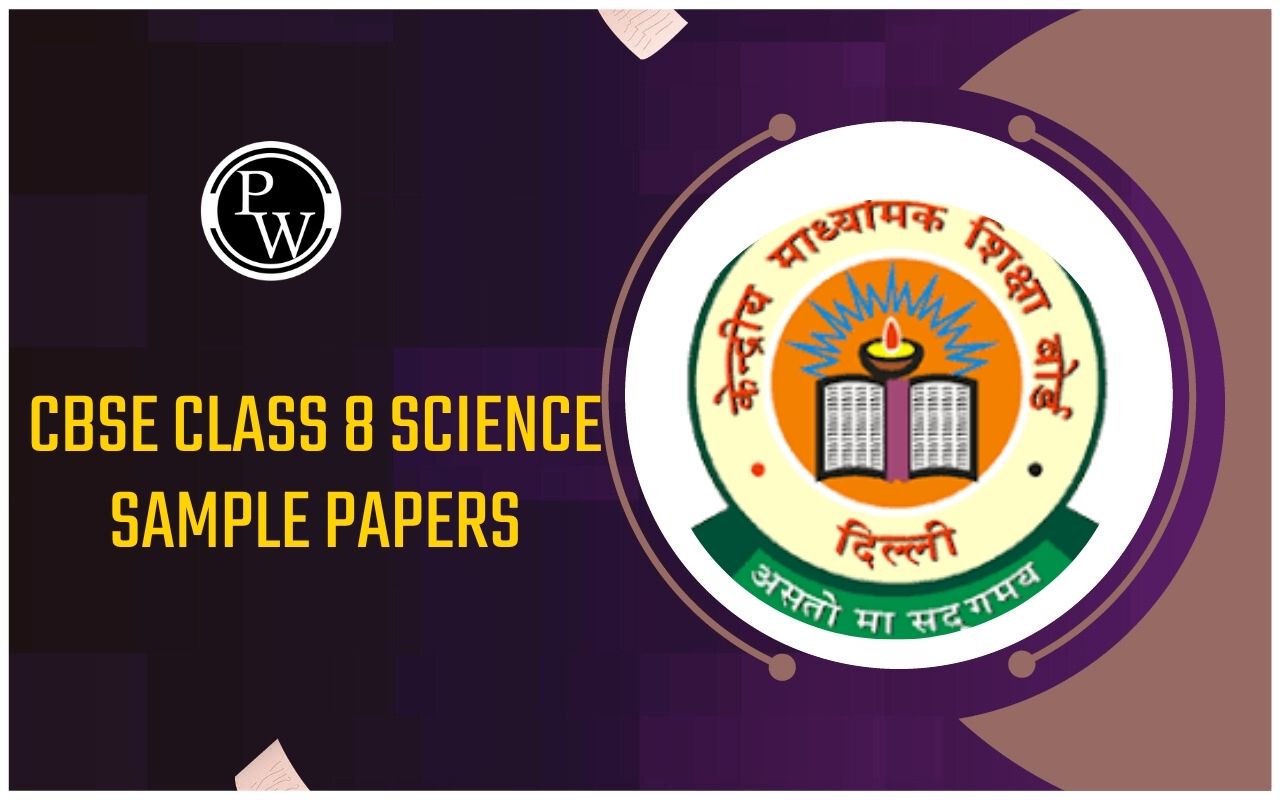
CBSE Class 8 Science Notes: The purpose of CBSE Notes of Class 8 Science is to assist students in appreciating and assessing several fundamental ideas in biology, chemistry, and physics. Most students find it difficult to study chapters from their school-mandated textbooks because of the extensive syllabus. Most of the time, pupils read the material word for word without comprehension. Alternatively, if the pupils are studying from well-crafted CBSE Class 8 notes, they will successfully comprehend and remember the significance of every idea they are learning.
With the help of our CBSE Class 8 Science notes, students will be able to study effectively and gain a thorough understanding of every topic covered in their syllabus. These CBSE Notes will assist students in rapidly gaining more information as well as a thorough understanding of each chapter. Additionally, the notes include well-illustrated examples to facilitate the review of key concepts. As a result, students who use these carefully thought-out Science notes can improve their exam preparation and receive higher exam scores.CBSE Class 8 Science Notes
Below we have provided a chapter wise table for the CBSE Class 8 Science Notes -| CBSE Class 8 Science Notes |
| Chapter 1 – Crop Production and Management |
| Chapter 2 – Microorganisms: Friend and Foe |
| Chapter 3 – Coal and Petroleum |
| Chapter 4 – Combustion and Flame |
| Chapter 5 – Conservation of Plants and Animals |
| Chapter 6 – Reproduction in Animals |
| Chapter 7 – Reaching the Age of Adolescence |
| Chapter 8 – Force and Pressure |
| Chapter 9 – Friction |
| Chapter 10 – Sound |
| Chapter 11 – Chemical Effects of Electric Current |
| Chapter 12 – Some Natural Phenomena |
| Chapter 13 – Light |
CBSE Class 8 Science Notes Overview
CBSE Class 8 Science covers a wide range of topics across physics, chemistry, biology, and environmental science, helping students build a strong foundation in scientific concepts. The curriculum includes chapters on force, pressure, friction, sound, light, and electricity, introducing fundamental physical principles. It also covers chemical reactions, materials, and the structure of atoms. In biology, the focus is on cell structure, reproduction, ecosystems, and conservation of plants and animals.CBSE Class 8 Science Notes Chapter 1 Crop Production and Management
Chapter 1 of CBSE Class 8 Science, "Crop Production and Management," introduces agricultural practices essential for food production. It covers topics like types of crops, methods of soil preparation, sowing, irrigation, weeding, harvesting, and storage. The chapter emphasizes the importance of proper crop management techniques and highlights the role of fertilizers, pesticides, and modern irrigation methods in improving agricultural productivity.CBSE Class 8 Science Notes Chapter 2 Microorganisms Friends and Foe
Chapter 2 of CBSE Class 8 Science, "Microorganisms: Friend and Foe," explores the role of microorganisms in our lives. It explains beneficial microbes used in food production, medicine, and agriculture, while also discussing harmful microbes that cause diseases. The chapter emphasizes their dual nature as both useful and harmful to humans.CBSE Class 8 Science Notes Chapter 3 Coal and Petroleum
Chapter 3 of CBSE Class 8 Science, "Coal and Petroleum," discusses fossil fuels like coal, petroleum, and natural gas, formed from the remains of dead organisms over millions of years. It highlights their uses, methods of extraction, and the environmental issues associated with their overuse, emphasizing the need for alternative energy sources.CBSE Class 8 Science Notes Chapter 4 Combustion and Flames
Chapter 4 of CBSE Class 8 Science, "Combustion and Flames," explains the process of combustion, types of fuels, and how flames are produced. It discusses conditions required for combustion, the types of flames, and the concept of fire control. The chapter also highlights the environmental impact of burning fuels and fire safety.CBSE Class 8 Science Notes Chapter 5 Conservation of Plants and Animals
Chapter 5 of CBSE Class 8 Science, "Conservation of Plants and Animals," emphasizes the importance of biodiversity and the need to protect ecosystems. It covers deforestation, endangered species, and the role of national parks, wildlife sanctuaries, and biosphere reserves in conservation, while promoting afforestation and sustainable practices to preserve natural resources.CBSE Class 8 Science Notes Chapter 6 Reproduction in Animals
CBSE Class 8 Science Notes Chapter 7 Reaching the Age of Adolescence
Chapter 7 of CBSE Class 8 Science, "Reaching the Age of Adolescence," discusses the physical and hormonal changes during puberty, marking the transition to adolescence. It covers topics like the development of secondary sexual characteristics, the role of hormones, reproductive health, and the importance of maintaining hygiene during this crucial developmental stage.CBSE Class 8 Science Notes Chapter 8 Force and Pressure
Chapter 8 of CBSE Class 8 Science, "Force and Pressure," explains the concept of force, its effects on objects, and types of forces like contact and non-contact forces. It also covers the concept of pressure, its relation to area, and the applications of pressure in daily life, including in fluids and gases.CBSE Class 8 Science Notes Chapter 9 Friction
Chapter 9 of CBSE Class 8 Science, "Friction," explains the force of friction, its causes, and effects. It discusses the types of friction—static, sliding, and rolling—and factors that affect friction. The chapter also highlights the advantages and disadvantages of friction, along with methods to reduce or increase friction in various applications.CBSE Class 8 Science Notes Chapter 10 Sound
Chapter 10 of CBSE Class 8 Science, "Sound," explores how sound is produced, transmitted, and heard. It explains the concepts of vibration, sound waves, and their propagation through different mediums. The chapter also covers topics like pitch, frequency, loudness, and the human ear’s role in perceiving sound, along with noise pollution control.CBSE Class 8 Science Notes Chapter 11 Chemical Effects of Electric Current
Chapter 11 of CBSE Class 8 Science, "Chemical Effects of Electric Current," explains how electric current can cause chemical changes in substances. It discusses electrolysis, the process of electroplating, and the conductivity of liquids. The chapter also highlights practical applications of chemical effects, such as in purifying metals and producing chemical compounds.CBSE Class 8 Science Notes Chapter 12 Some Natural Phenomena
Chapter 12 of CBSE Class 8 Science, "Some Natural Phenomena," discusses natural events like lightning and earthquakes. It explains how lightning occurs, safety measures during storms, and the importance of lightning conductors. The chapter also covers earthquake causes, seismic zones, and safety tips during earthquakes, emphasizing preparedness to minimize damage and injury.CBSE Class 8 Science Notes Chapter 13 Light
Chapter 13 of CBSE Class 8 Science, "Light," explores the behavior of light, including reflection, refraction, and the formation of images by mirrors and lenses. It explains the laws of reflection, the functioning of the human eye, and the concept of vision correction, along with the working of optical instruments like periscopes and kaleidoscopes.Benefits of CBSE Class 8 Science Notes
The benefits of using CBSE Class 8 Science Notes include:Simplified Learning: Concise summaries and explanations make complex topics easier to understand.
Time-Saving: Well-organized notes help in quick revision before exams.
Concept Clarity: Key concepts are highlighted, improving conceptual understanding and retention.
Exam Preparation: Focuses on important topics and questions likely to appear in exams.
Structured Information: Provides a clear, organized outline of the syllabus for systematic learning.
Boosts Confidence: With thorough preparation, students feel more confident in answering exam questions.
CBSE Class 8 Science Notes FAQs
Are CBSE Class 8 Science notes enough for exam preparation?
Are NCERT Science books sufficient for Class 8 exams?
Where can I find CBSE Class 8 Science notes?
Can I access CBSE Class 8 Science notes without internet?









